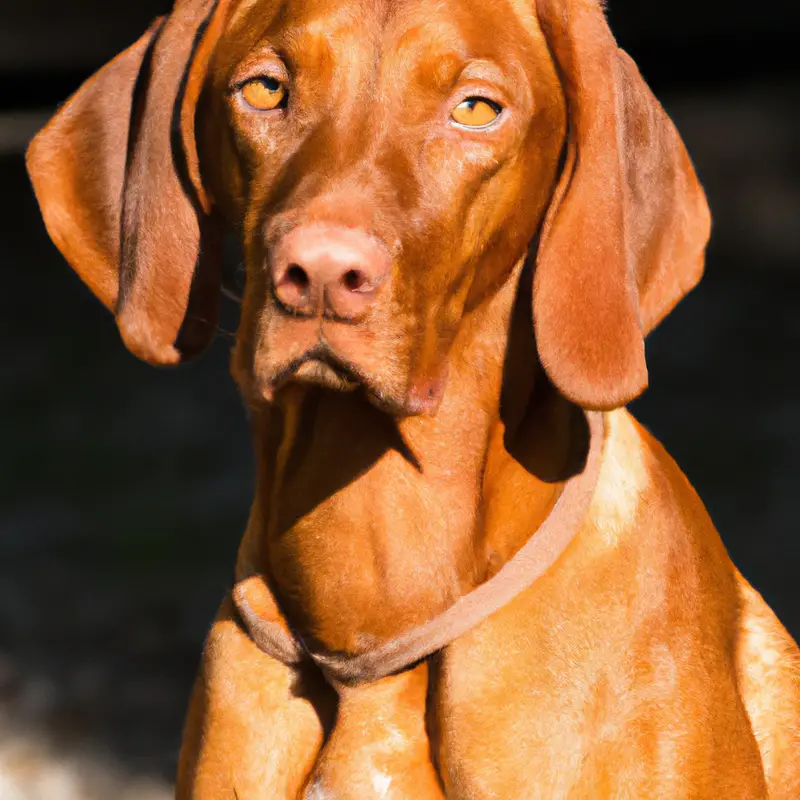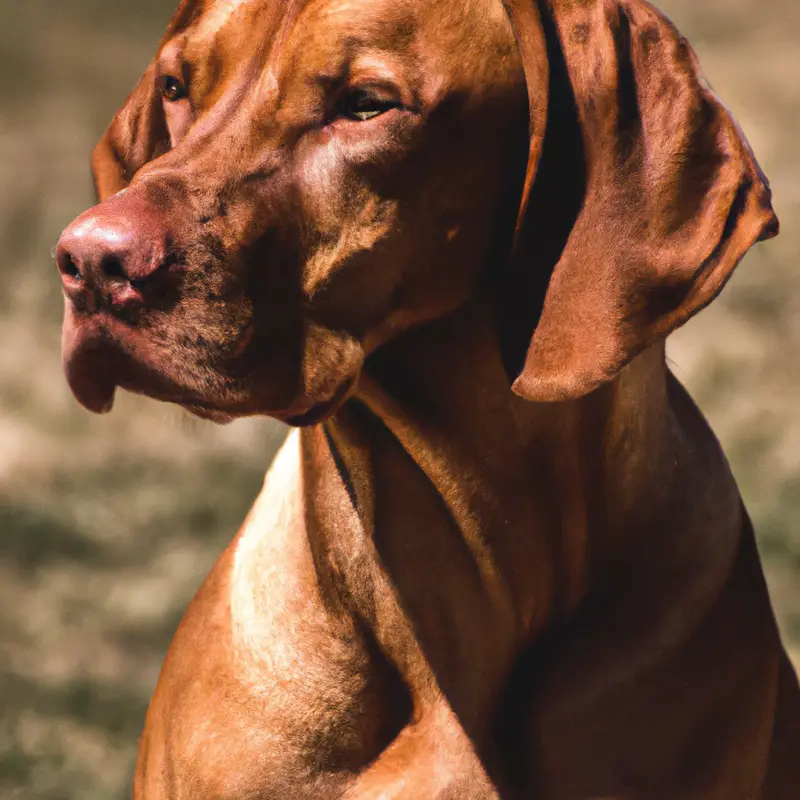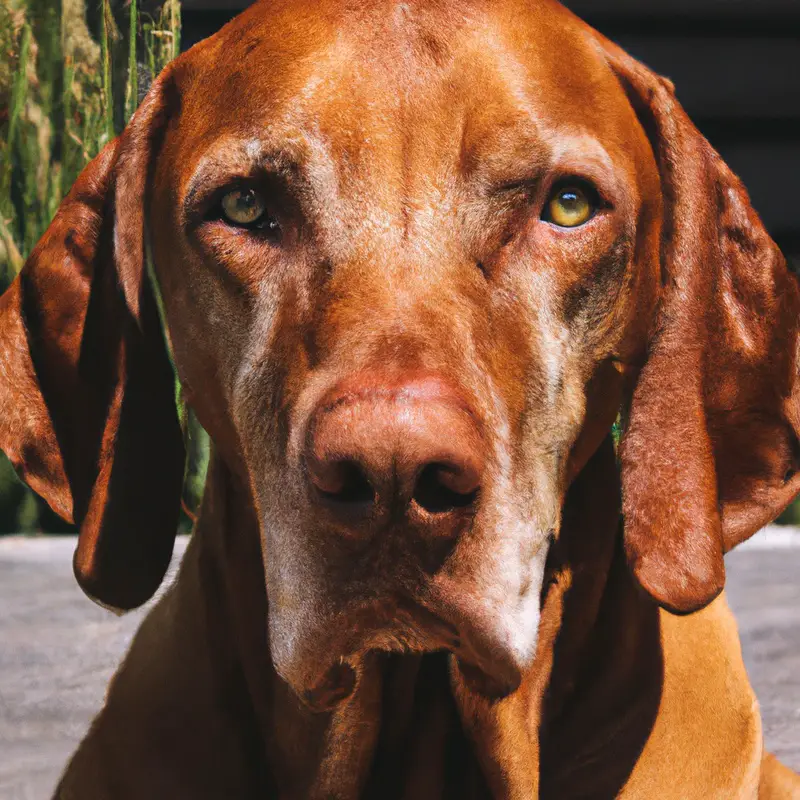What Are Some Common Vizsla Sleep Patterns And Habits?
Key Takeaways:
- Vizslas tend to sleep for approximately 14-16 hours per day.
- They have a tendency to sleep lightly, waking up easily to any noises or disruptions.
- Vizslas often prefer to sleep close to their owners or in cozy spots like beds or couches.
- They may exhibit irregular sleep patterns, including brief naps throughout the day.
Have you ever wondered about the sleep patterns and habits of Vizslas? These beautiful and energetic breeds are not only known for their stunning appearances but also for their unique sleep patterns.
As an expert in Vizsla behavior, I can tell you that understanding their sleep habits is crucial for their overall well-being and happiness.
In this article, we will delve into various aspects of Vizsla sleep, including their typical sleep schedule, common sleeping positions, and even disturbances they may experience during sleep. So if you want to give your furry friend the best rest possible, keep reading!
| Sleep Category | Description |
|---|---|
| Daytime Naps | Vizslas commonly take short naps during the day to recharge. |
| Nighttime Sleep | Vizslas need approximately 12-14 hours of sleep during the night, ideally in a quiet and comfortable space. |
| Bedtime Routine | Establishing a consistent bedtime routine can help Vizslas prepare for restful sleep. |
| Sleeping Positions | Vizslas may sleep in various positions, such as curled up, on their side, or stretched out. |
| Dreaming | Like humans, Vizslas may experience dreaming during their sleep, including movements and vocalizations. |
| Co-Sleeping | Some Vizslas enjoy sleeping in close proximity to their owners. |
Understanding Vizsla Sleep Patterns and Habits
Factors Affecting Vizsla Sleep Habits
Several factors can affect a Vizsla’s sleep habits.
Some of these factors include their age, activity level during the day, and the presence of any underlying health issues.
Additionally, the environment they sleep in, such as noise levels and temperature, can also impact their sleep.
It’s important to provide a comfortable and calm sleeping area for your Vizsla and establish a consistent bedtime routine to promote healthy sleep habits.
Monitoring their activity and addressing any health concerns will also contribute to better sleep for your Vizsla.
Typical Vizsla Sleep Schedule
A typical Vizsla sleep schedule includes around 12 to 14 hours of sleep per day. Most Vizslas prefer to sleep in short bursts throughout the day, rather than having one long period of sleep at night.
They may take naps during the day and be more active during the morning and early evening.
It’s important to provide a comfortable and quiet sleeping area for your Vizsla, as they value their rest.
Common Vizsla Sleeping Positions
Common Vizsla Sleeping Positions Vizslas have a few common sleeping positions that they often use to get comfortable. One common position is the “Superman,” where they stretch out on their stomachs with their legs extended behind them.
Another position is the “Curl-up,” where they tuck their legs underneath their bodies and curl up into a ball.
Some Vizslas also enjoy sleeping on their backs with their legs in the air, in what is known as the “Belly-up” position. Each Vizsla might have their preferred position, but they also tend to switch it up from time to time.
Vizsla Sleep Disturbances and Solutions
Vizslas may experience sleep disturbances for various reasons.
Some common disturbances include restless sleep, excessive dreaming, and even separation anxiety.
Here are a few solutions to help alleviate these issues:
- Establish a bedtime routine by keeping a consistent schedule for feeding and exercise.
- Provide a comfortable and quiet sleeping environment for your Vizsla.
- Offer mental stimulation during the day to help tire them out before bedtime.
- Consider crate training to create a safe and secure space for your Vizsla to sleep.
- If separation anxiety is a concern, gradually desensitize your Vizsla to being alone by starting with short periods and gradually increasing the time.
Remember to consult with your veterinarian if sleep disturbances persist or if you have specific concerns about your Vizsla’s sleep patterns.

Promoting Healthy Sleep for Vizslas
Promoting healthy sleep for Vizslas is essential for their overall well-being. Here are some tips to help your Vizsla get a good night’s sleep:
- Create a comfortable sleeping environment by providing a cozy bed or crate with soft bedding.
- Establish a consistent sleep schedule to help regulate your Vizsla’s internal clock.
- Encourage daily exercise to help tire them out and promote better sleep.
- Limit food and water intake before bedtime to prevent disruptions during the night.
- Minimize exposure to stimulating activities or noises in the evening to promote relaxation.
- Consider using white noise or calming music to create a soothing sleep environment.
- Practice positive sleep associations by rewarding calm behavior before bedtime.
- Ensure your Vizsla has access to a quiet and dark sleeping area, free from distractions.
Remember, every dog is unique, so it’s important to observe your Vizsla’s sleep patterns and adjust accordingly. By promoting healthy sleep habits, you can help your Vizsla get the rest they need for a happy and active life.
Frequently Asked Questions about Vizsla Sleep Patterns and Habits
Q: How much sleep do Vizslas need? A: Vizslas are known to be active and energetic dogs, but they also require plenty of sleep to recharge.
On average, adult Vizslas need around 12 to 14 hours of sleep per day, while puppies may need even more, up to 18 hours.
It’s important to provide them with a comfortable, quiet space for uninterrupted rest. Q: Do Vizslas have specific sleep habits?
A: Vizslas may have some unique sleep habits.
They often enjoy curling up in cozy spots or even burrowing under blankets for extra warmth. These dogs also tend to be light sleepers, easily awakened by any unusual sounds or movements.
Additionally, Vizslas may experience vivid dreams and may even twitch or bark while asleep.
Q: Should I establish a sleep routine for my Vizsla? A: Establishing a consistent sleep routine can be beneficial for your Vizsla.
By providing regular sleep and waking times, you can help them develop healthy sleeping habits.
Creating a calming bedtime routine, such as a short walk or some quiet playtime, can also signal to your Vizsla that it’s time to wind down and prepare for sleep. Q: Do Vizslas experience sleep disturbances?
A: Yes, Vizslas can experience sleep disturbances, especially if they are not getting enough physical activity during the day.
Lack of exercise can result in restless sleep, excessive movement, or difficulty falling asleep. Providing regular exercise and mental stimulation can help prevent sleep disturbances and promote better sleep quality for your Vizsla.
Q: Should I allow my Vizsla to sleep in my bed?
A: Whether or not you allow your Vizsla to sleep in your bed is a personal choice. However, it’s important to establish boundaries and ensure that your dog understands they must respect your personal space.
If you decide to let them sleep in your bed, make sure they have their own designated sleeping area and that they are well-trained to avoid any disruptions during the night.

How much sleep do Vizslas need?
Vizslas need an average of 14 to 16 hours of sleep per day. They are active dogs and have high energy levels, so they require plenty of rest to recharge.
It’s important to provide them with a comfortable sleeping area and establish a consistent bedtime routine.
Regular exercise and mental stimulation throughout the day can help promote better quality sleep for Vizslas. Remember to ensure they have a quiet and peaceful environment for uninterrupted rest.
Do Vizslas snore?
Yes, Vizslas can snore.
Snoring in dogs, including Vizslas, is usually caused by obstruction of the airway during sleep.
This can be due to factors like congestion, allergies, or the position they sleep in.
While not all Vizslas snore, it is not uncommon for them to do so.
If your Vizsla is snoring excessively or experiencing other breathing difficulties, it’s always advisable to consult with a veterinarian to rule out any underlying health issues.

Why do Vizslas twitch while sleeping?
Vizslas may twitch while sleeping due to the REM (rapid eye movement) phase of sleep, which is when most dreaming occurs.
Twitching can indicate that your Vizsla is engaged in a dream or an active sleep state.
It’s a normal behavior for dogs, including Vizslas, and usually nothing to worry about.
Just let your furry friend enjoy their dreams and ensure they have a comfortable, safe sleep environment.
Can Vizslas sleep in the same bed as their owners?
Yes, Vizslas can sleep in the same bed as their owners. Many Vizslas enjoy being close to their owners and find comfort in sleeping next to them.
It can help strengthen the bond between the dog and their owner.
However, it’s important to ensure that there is enough space for both the owner and the dog to be comfortable. Additionally, if the owner has any allergies or if the dog’s presence in the bed disrupts their sleep, it may be best to establish a separate sleeping area for the Vizsla.
Should I wake up my Vizsla during the night if they are dreaming?
No, you should not wake up your Vizsla during the night if they are dreaming. Dogs, including Vizslas, experience dreams just like humans do.
It’s a natural part of their sleep cycle.
Waking them up abruptly can startle and confuse them. It’s best to let them sleep and allow their dream cycle to run its course.
However, if they are having a particularly intense or disturbing dream, you can gently wake them by calling their name or softly saying their favorite commands to help them transition out of the dream.
Final Verdict
Understanding Vizsla sleep patterns and habits is crucial for ensuring the overall wellbeing and happiness of these beloved dogs. From factors affecting their sleep habits to common sleeping positions and disturbances, we have explored various aspects of their sleep routines.
By promoting healthy sleep and addressing any disturbances, Vizsla owners can provide a comfortable and restful environment for their pets.
Remember, the amount of sleep Vizslas need, the occasional snoring or twitching during sleep, and the decision of sleeping arrangements with their owners are all individual preferences. Overall, prioritizing good sleep for Vizslas will contribute to their overall health and happiness.







